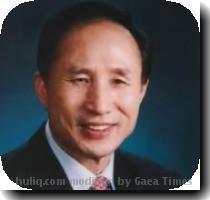SKorean mourns 46 sailors killed in warship sinking at military funeral, vows to retaliate
By Yong-ho Kim, APThursday, April 29, 2010
South Korea honors sailors killed in ship sinking
PYEONGTAEK, South Korea — Sirens blared across South Korea on Thursday as a solemn military funeral honored 46 seamen killed after a blast sank their warship last month. Officials vowed retaliation against those responsible for an attack many believe North Korea launched.
Warships anchored at the base south of Seoul where the funeral was held sounded whistles, and seamen aboard saluted when the vehicles carrying the ashes left for the cemetery.
A somber President Lee Myung-bak and his wife — who joined 2,800 mourners at the ceremony — offered white chrysanthemums, burned incense and bowed before the framed photos of the soldiers, while buglers played taps. Lee, the commander in chief of South Korea’s armed forces, then saluted.
Former President Chun Doo-hwan, lawmakers and military leaders also paid respects to those who died in one of South Korea’s worst naval disasters.
South Korea has not directly blamed its Cold War-era rival North Korea, but suspicion has focused on Pyongyang given its history of provocations and attacks on the South. South Korea’s defense minister said this week the blast was most likely caused by a torpedo attack. North Korea has denied any role.
The name of each sailor was read out while Lee, clad in a black suit and tie, placed military decorations on a giant alter below photos of each man. They had all been posthumously promoted by one rank in recent days.
Buddhist monks clad in orange and white robes chanted prayers at the interfaith funeral. A Roman Catholic priest and a Protestant minister also participated.
“The Cheonan is engraved as history into the people’s hearts and your honorable sacrifice is being reborn as patriotism,” Chief Petty Officer Kim Hyun-rae, one of the 58 survivors of the disaster, said in an address to the funeral.
Tears welled up in the eyes of President Lee as he listened to Kim’s speech.
The sailors went down with the 1,200-ton Cheonan near the tense western sea border with North Korea on March 26 shortly after it was torn apart by what investigators believe was an underwater blast from outside the ship.
The bodies of 40 of the sailors were recovered, while six others remained unaccounted for and are presumed dead.
The Cheonan was on a routine patrol before it split in two and sank near the disputed western sea border, a scene of three bloody sea battles between the rival Koreas that remain locked in a state of war since their 1950-53 conflict ended in a truce instead of a peace treaty.
“We cannot forgive this and must not forgive it and must not forget it,” Navy Chief of Staff Kim Sung-chan said in a speech at the funeral. “We will never sit idly against whoever inflicted huge pain to our people. “
Military retaliation against Pyongyang, however, is considered unlikely as it could lead to major conflict and frighten away investors at a time when South Korea is recovering fast from the global financial meltdown and prepares to hold a summit of leaders from the Group of 20 in November.
North Korea has waged a slew of attacks against South Korea, including a 1987 downing of a South Korean passenger plane that killed all 115 people on board, one of the reasons the country is suspected of involvement.
The funeral took place at the 2nd Fleet headquarters in Pyeongtaek, about 45 miles (70 kilometers) south of Seoul, the Cheonan’s home base. After the ceremony, the remains were transported by hearse to the national cemetery in the central city of Daejon for burial later Thursday.
About 3,000 white and black balloons were released into the air. Cheonan survivors carried photos of the dead sailors.
Uniformed soldiers lined the streets outside the navy base and saluted when the funeral procession went by.
People at Seoul’s main railway station, including uniformed soldiers on leave and traveling home, gathered around television screens to pause in remembrance.
Kim Yong-mi wiped away tears with a handkerchief, her eyes red and watery.
“So many died too young,” said Kim, 68. “As someone who’s lived all these years more than they ever will, I’m ashamed to be standing here, alive.”
Flags in South Korea are flying at half-staff and many government buildings in Seoul have hung large black-and-white placards reading, “We will not forget your honorable sacrifice.” An estimated 400,000 people have reportedly visited mourning locations set up across the country to pay respects.
__
Hyung-jin Kim reported from Seoul, South Korea. Associated Press writers Sangwon Yoon and Kelly Olsen contributed to this report.
Tags: Accidents, Asia, East Asia, Funerals And Memorial Services, Koreas, Lee Myung-bak, North Korea, Pyeongtaek, Seoul, South Korea, Territorial Disputes, Transportation

